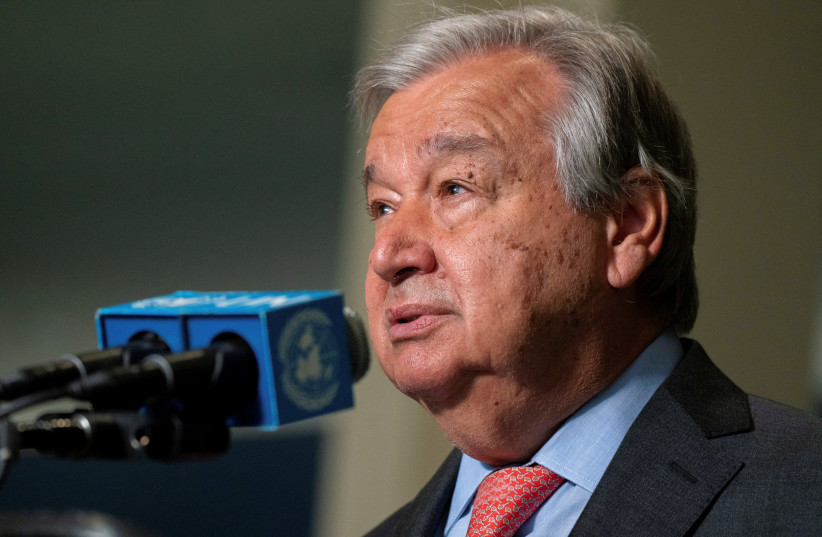The president of the World Jewish Congress penned a separate letter Thursday underscoring the importance of an original plea made Wednesday by a coalition of major United States and global Jewish organizations writing to United Nations leaders. The Jewish groups urged the UN to include an endorsement of the International Holocaust Remembrance Alliance’s working definition of antisemitism in the UN’s upcoming action plan on antisemitism.
“The importance of the International Holocaust Remembrance Alliance (IHRA) Working Definition of Antisemitism cannot be overstated," WJC President Ronald Lauder wrote on Thursday.
“It is the most widely adopted and accepted definition by governments, institutions and organizations around the world. It’s essential to effectively combat antisemitism, because it allows policymakers worldwide to identify and respond to all forms of Jew hatred, including those that may be more subtle, but no less insidious.
“The international Jewish community would be gravely disappointed if the IHRA definition were not exclusively included in any action plan and would see it as not representative of their experiences and the true manifestations of modern antisemitism.”

Wednesday's letter, signed by more than 160 Jewish communities and organizations worldwide, comes in advance of a UN forum on antisemitism, slated for June 20-21 in Cordoba, Spain.
The letter asks UN Secretary-General António Guterres and Under-Secretary-General Miguel Moratinos, “to ensure that the IHRA Working Definition of antisemitism is referenced positively in the forthcoming ‘UN Action Plan on monitoring antisemitism and enhancing a system-wide response’ as an indispensable educational and monitoring tool, the value of which has been widely recognized by many key stakeholders, and one that should be used for training UN staff, among others, on how to recognize and respond to antisemitism.”
Who has adopted the IHRA Working Definition of Antisemitism?
As of the end of December 2022, a total of 1,116 global entities have adopted and endorsed the International Holocaust Remembrance Alliance’s Working Definition of Antisemitism. In the United States, during 2022, 18 states adopted it via legislation or executive actions, bringing the total number of adopting states to 30. Seven out of 10 Canadian provinces have adopted the definition as well. US cities such as Los Angeles, Washington, El Paso and Wichita, Kansas, have also all adopted the IHRA definition.
Since the Working Definition of Antisemitism was adopted by the alliance in 2016, it has become the most widely-recognized barometer in the collective effort against Jew-hatred, serving as an essential tool to identify and delineate all contemporary manifestations of this age-old bigotry.
Notably, with antisemitism on the rise and increasingly becoming mainstream in the US, many more American cities and states have adopted the IHRA definition at a critical turning point and as a first step in taking serious action against Jew hatred.
Zvika Klein contributed to this report.
